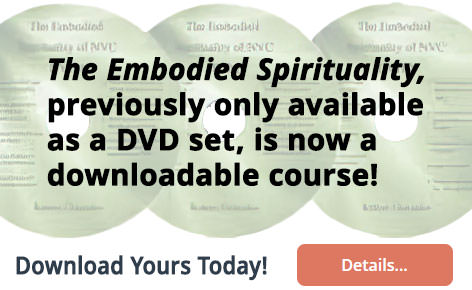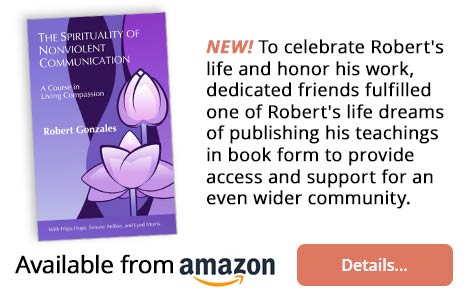

Welcome to the Robert Gonzales Training Legacy. Here you can learn more about Robert and the powerful teachings he dedicated his life to. NVC Academy is proud to house and share with you the complete body of his life's work. We invite you to explore, learn, and help keep his legacy alive!
Robert's passion was in the spirituality of the Nonviolent Communication (NVC) process. He saw NVC both as a process that helps people connect more authentically with themselves and others, and as a spiritual practice and way of living. The worldwide NVC community mourned when Robert died in 2021. He left behind a legacy of work that emerged from a lifetime of inquiry into the intersection between spirituality and human communication. More about Robert.
Article
22 - 31 minutes
Within the pandemic, limitations of our market economies are more visible. Extreme need is exposed when the economy is collapsing and so many people are without jobs. We can now see how it’s possible to direct resources where they are most needed, solely out of care and interconnection. This is a call to explore a more viable way of living, that centers relationship over transaction.
Details...Practice Exercise
2-3 minutes
Emotional regulation is the consistent capacity to fully experience one’s feelings, particularly when they are intense and/or painful. Here are 36 practices that help with emotional regulation that can be done alone or with others. Read on for more.
Details...Trainer Tip
2 - 3 minutes
Trainer tip: Empathy can offer profound learning opportunities to children, expand their feelings and needs vocabulary, and teach them the positive results of valuing everyone’s needs. Read on for a story that illustrates this.
Details...Article
2 - 3 minutes
Trainer Tip: Here are some options for tense moments in conversations: try a "redo", understand and recognize your habits, pause to regroup, empathize with the person so they feel heard, check your mind frame before speaking, and name some appreciations about one another.
Details...Article
15 - 23 minutes
Understanding how our brains operate in relation to power, privilege and status is important if we wish to build a world that works for all. This article gives an overview of the brain tendencies we have in relationship to groups, and provides remedies to counteract the automatic labor-saving devices of our human brains (which often prevent us from seeing the fullness of others, and our own, humanity).
Details...Trainer Tip
1 - 2 minutes
Trainer tip: Read on for the three stages of emotional maturity. In the third stage, we integrate the first two stages. We come to realize that everyone is responsible for their own feelings, but we also recognize our role if we do something that stimulates pain in another person. We also start to value the needs of everyone, rather than just one party's needs over the other.
Details...Article
2-3 minutes
When you want to be heard, first check if your listener is available. This honors yourself, and the other person’s choice about listening. You need to be clear about wanting a particular quality of listening, and that you are willing to wait if that isn’t available in the moment. Read on for how to ask for listening in a way that can build trust that your request isn't a demand.
Details...Article
4 - 6 minutes
Our pattern-making minds make predictions about how best to survive in the world. So deep wounds from our past can influence our minds to make life long generalizations that harden into core beliefs about groups of people. Read on for a demonstration of how empathy can shift these wounds and thus the core beliefs.
Details...Trainer Tip
1 - 2 minutes
Trainer tip: Whenever we judge someone else in any way, we create a barrier and distance between us and the other person. Instead, consider shifting from judging other people to awareness of how their behavior affects your feelings and needs. This can make a profound difference in your ability to live peacefully. Read on for more.
Details...Article
6 - 9 minutes
There's reactive anger - the sudden outbursts of words, temper or action that create a nervous system response in another. And then there's the anger that's a reaction to someone's anger -- a nervous system startle-response. Instead of either of these, we can learn to heal with empathy, look for unequal power dynamics, take responsibility to make repairs, and shift into the clean, life-serving, fully expressed anger and love.
Details...

